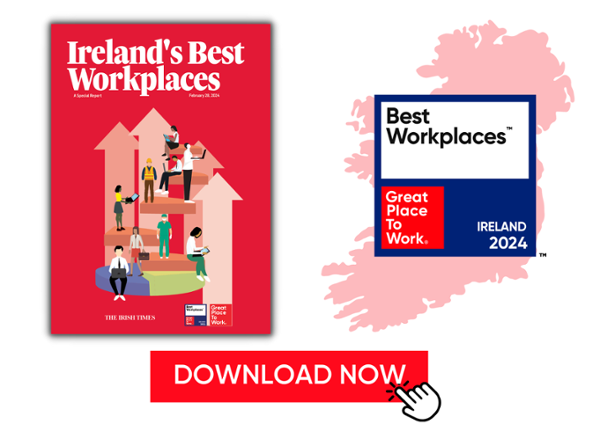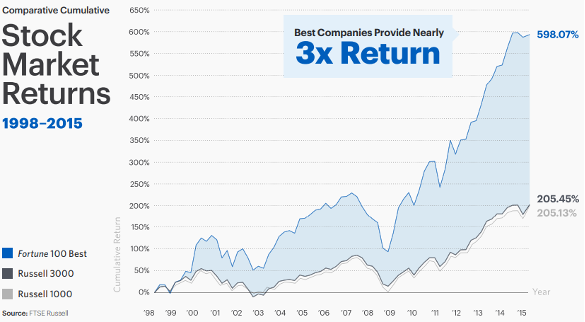Those in HR roles will be well aware of the value of culture to organisational success. However, not everyone will share their conviction, which can present a challenge when attempting to persuade leaders to devote resources to cultural improvements. The question then is, what is the most compelling evidence needed to make a case for culture? In this article, we will arm you with the facts and figures you need to convince even the most sceptical individuals of the importance of culture.
Culture Attracts Talent
Research indicates culture is the key to attracting talent.
1. Drawing on the responses of over 1,000 employees across sectors, 90% of those surveyed stated they had researched the culture of a company before accepting a role.
2. In another study, over 50% of the 5,000 professionals surveyed said that company culture is more important than salary where organisational attractiveness is concerned. (1) (2)
Culture Aids in Talent Retention
3. A study published by Grant Thornton highlights the significant role of culture in retaining talent. Of the 1,000 cross-sector employees surveyed, 50% stated that they would leave their jobs for a lower-paying job in exchange for a better organisational culture.
4. These findings are far from unusual, with a 4,000 plus participant study revealing that an employee’s positive evaluations of their organisation’s culture reduced the intention to find new employment by 50%. (3) (4)

Culture Fosters Productivity
In a survey that gathered the perspectives of over 1,000 employees across a variety of industries, the felt relationship between culture and productivity is clear. Employees are well aware of the culture in their organisation and how it influences their performance. The impact of culture from the perspective of employees can be seen in the responses to the statements below. (5)
5. Does the culture at your workplace impact your ability to do your best work? – 77% Agreed
6. Does the culture at your workplace impact your productivity/efficiency? – 76% Agreed
7. Does the culture at your workplace impact your ability to serve customers? – 74% Agreed
Culture Enables Whole Organisation Goal Alignment
Organisational values are a core component of culture. Values provide a shared purpose that can align the priorities of a diverse workforce and set behavioural standards to be aspired to.
8. Research shows that where organisations hire those who share their defined values, those employees enjoy greater success in the company. This could account for the evidence linking the presence of values to improved organisational performance in areas such as return on investments, and customer volume. (6)
52.6 % of organisations with explicitly stated values performed above the average of their sector.
21.1 % of organisations without explicitly stated values performed above the average of their sector.

Culture Affects Customer Satisfaction
9. In research that gathered the perspectives of employees and customers from two different organisations, the influence of culture on customer satisfaction is indisputable. By comparing employees evaluation of their organisational culture with that organisation’s customer satisfaction rating, the tangible effects of investing in culture on customer satisfaction are clear. (7)
- Organisation A: 100% of employees expressed a positive evaluation of their culture, 70% of their customers rated the service they received as satisfactory.
- Organisation B: 25% of employees expressed a positive evaluation of their culture, 13% of their customers rated the service they received as satisfactory.
Culture is pervasive, influencing the behaviour and priorities of employees. This will occur regardless of how intentional an organisation is in shaping its culture, where the social and emotional tone of the organisation can either be created by chance or intention. A customer-centric culture must be deliberately developed through effective communication and clever recognition practices.
More resources:
Culture Drives Bottom-Line Improvements
In a study published by investment firm FTSE Russell, the evidence that culture influences bottom-line improvements is compelling. Organisations whose culture earned them a position as one of Fortune 100 Best Companies to Work For® in the U.S. achieved superior results over a several-year period across metrics including operating income per employee, operating margin, growth rate and return on assets.
10. Where publicly traded companies are concerned, a high trust culture can multiply stock market returns 3-fold. (8)

Final Thoughts
While culture is often framed as a “soft concept”, the hard evidence cited above should be sufficient to change the minds of even the most skeptical individuals. The question then turns from “why should we focus on our culture?” to “what kind of culture can help us realise our goals?” The answer to that is a culture built on the foundation of trust, a tried and tested framework for developing Great Cultures that last.
Sources
(1) https://www.robertwalters.co.uk/content/dam/robert-walters/country/united-kingdom/files/whitepapers/Robert-Walters-Cultural-Fit-Whitepaper.pdf
(2) https://www.glassdoor.co.uk/blog/mission-culture-survey/
(3) https://academiccommons.columbia.edu/doi/10.7916/D8DV1S08
(4) https://apnews.com/press-release/business-wire/business-chicago-financial-performance-7c779ac701724a4686ce454d5b33ccba
(5) https://www.eaglehillconsulting.com/wp-content/uploads/Eagle-Hill-Consulting-Business-Case-For-Culture.pdf
(6) https://www.researchgate.net/publication/239807972_The_Importance_of_Organizational_Values_for_Organization
(7) https://www.researchgate.net/publication/309508648_ORGANIZATIONAL_CULTURE_AND_CUSTOMER_SATISFACTION_A_PUBLIC_AND_BUSINESS_ADMINISTRATION_PERSPECTIVE
(8) https://learn.greatplacetowork.com/rs/520-AOO-982/images/GPTW%202016%20Exec%20Summary%20Business%20Case%204%20page%20Final.pdf
About Great Place to Work®
Great Place to Work® is the global authority on workplace culture. We help organisations quantify their culture and produce better business results by creating a high-trust work experience for all employees. We recognise Great Place to Work-Certified™ companies and the Best Workplaces™ in more than 60 countries.
To join the thousands of companies that have committed to building high-trust company cultures that help them attract, retain and take care of their people, contact us about getting Certified today.

